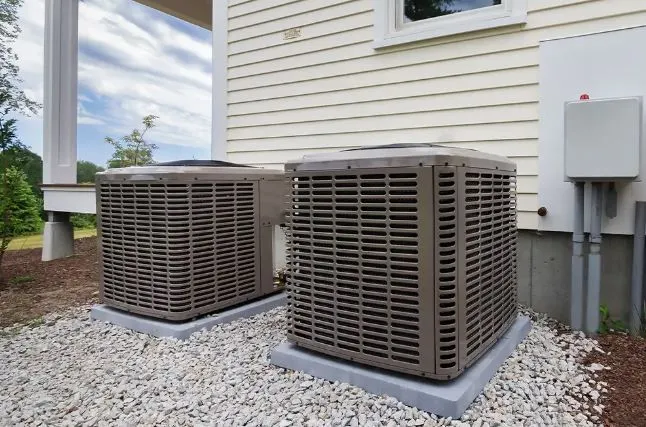
Your HVAC (heating, ventilation, and air conditioning) system is crucial for maintaining a comfortable living environment. However, like any mechanical system, it has a finite lifespan and will eventually need replacement. Knowing when to replace your HVAC system can save you from unexpected breakdowns, costly repairs, and inefficient energy usage. Here are some key signs to look out for that indicate it might be time to replace your HVAC system.
Age of the System
The age of your HVAC system is one of the primary indicators of whether it needs replacing. Most HVAC systems are designed to last between 10 to 15 years. If your system is approaching or has exceeded this age range, it’s wise to start considering a replacement. Older systems are often less efficient and more prone to breakdowns, leading to higher energy bills and repair costs.
Frequent Repairs
If you find yourself frequently calling for repairs, it may be more cost-effective to invest in a new system. Frequent breakdowns are a clear sign that your HVAC system is nearing the end of its useful life. The cost of multiple repairs can quickly add up and may soon surpass the cost of a new system. Additionally, newer systems come with warranties that can provide peace of mind and financial protection against future issues.
Rising Energy Bills
An increase in your energy bills without a corresponding increase in usage can indicate that your HVAC system is losing efficiency. As HVAC systems age, they often become less efficient, requiring more energy to maintain the same level of comfort. If you notice a significant spike in your energy costs, it might be time to evaluate your system’s performance and consider upgrading to a more energy-efficient model.
Inconsistent Temperatures
One of the main functions of an HVAC system is to maintain consistent temperatures throughout your home. If you start noticing uneven heating or cooling, with some rooms being too hot or too cold, it could be a sign that your system is struggling to distribute air properly. This can be due to various issues, including ductwork problems or the HVAC system itself failing to perform efficiently.
Unusual Noises
HVAC systems typically operate with a low hum. If you start hearing unusual noises such as grinding, squealing, or banging, it’s a clear sign that something is wrong. These noises often indicate internal components are wearing out or malfunctioning. While some issues can be repaired, persistent or severe noises usually point to the need for a replacement.
Poor Indoor Air Quality
Your HVAC system plays a vital role in maintaining indoor air quality by filtering out dust, pollen, and other pollutants. If you notice an increase in dust, allergy symptoms, or a musty smell, it could be due to your HVAC system’s inability to filter and circulate air effectively. Older systems or those in disrepair may struggle to maintain good indoor air quality, which can affect your health and comfort.
Excessive Humidity
An efficiently working HVAC system helps regulate humidity levels in your home. If you’re experiencing high humidity levels indoors, it could be a sign that your system is no longer capable of effectively removing moisture from the air. This can lead to problems such as mold growth, wood rot, and discomfort.
Lack of Smart Features
Modern HVAC systems come with advanced features such as smart thermostats, variable speed motors, and zoning capabilities, which can significantly enhance comfort and efficiency. If your current system lacks these features, upgrading to a new system can provide better control over your home’s climate and improve energy efficiency.
Conclusion
Knowing when to replace your HVAC system involves paying attention to various signs, including the age of the system, frequency of repairs, rising energy bills, inconsistent temperatures, unusual noises, poor indoor air quality, excessive humidity, and lack of modern features. By staying vigilant and addressing these issues promptly, you can ensure that your home remains comfortable, energy-efficient, and healthy. Replacing an old, inefficient HVAC system with a new, advanced model can be a worthwhile investment that pays off in comfort and savings over time.